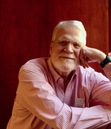Mark Scott Smith's Blog: Enemy in the Mirror, page 123
November 4, 2013
Japan Invades Thailand -Dec 8 1941
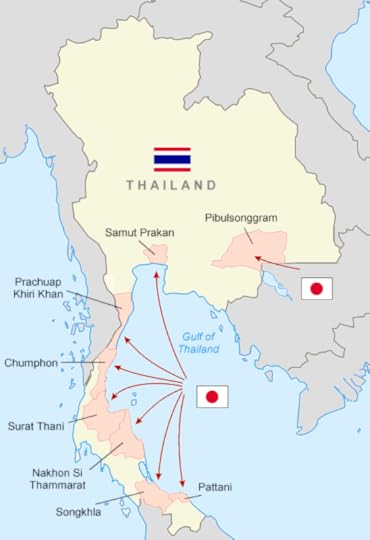
Japanese Invasion of Thailand 12/8/41; Wikimedia Commons
Uncertain if Thailand would allow Japanese troops free passage through its territory, Japan invaded the country on December 8, 1941.
An alliance between Thailand and Japan was formally signed on December 21, 1941. On January 25, 1942, the Thai government declared war on the United States and the United Kingdom.
The post Japan Invades Thailand -Dec 8 1941 appeared first on Enemy in the Mirror.
November 2, 2013
Why Wasn’t Wake Island Reinforced?
Wake Island is an atoll consisting of three islands with a lagoon, annexed by the United States as a result of victory over Spain in May 1898.
After the first Japanese attack of December 8, 1941, a relief convoy (Task Force 14) was dispatched from Hawaii 2300 miles away. On December 23 the Japanese launched a massive attack against Wake’s limited defenses. Realizing the island was almost certainly lost, and reluctant to lose any more capital ships in a futile engagement, Admiral Pye, acting commander of the Pacific fleet recalled the convoy.
The post Why Wasn’t Wake Island Reinforced? appeared first on Enemy in the Mirror.
Where Were All Those WW2 Pacific Islands?
November 1, 2013
Japan Invades Guam – Dec 10, 1941
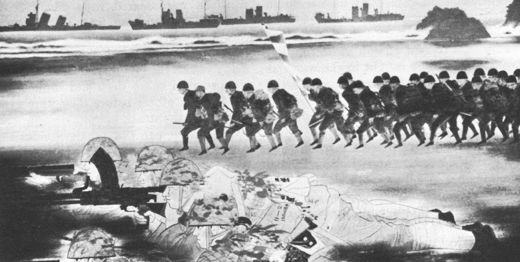
Japanese invasion of Guam; Wikimedia Commons
In December 1941 Guam was defended by small U.S. Naval and Marine units as well as the Insular Force Guard.
Beginning on December 8, 1941, Japanese aircraft repeatedly attacked American defenses on Guam. On December 10, about 400 Japanese troops of the 5th Defense Force from Saipan landed on on the island. An additional 5500 men of the Japanese South Seas Detached Force made separate landings in the north, southwest and eastern shores of the island. Japanese troops quickly advanced and defeated vastly outnumbered defenders. After token post -invasion resistance, the U.S. Marines surrendered.
U.S. Marine losses were 5 killed and 13 wounded (including the prior Japanese air assault of the island, the Marines’ losses were 13 dead and 37 wounded). The U.S. Navy lost 8 killed, The Guam Insular Force Guards lost 4 killed and 22 wounded. One Japanese naval soldier was killed and 6 wounded.
About 274 officers and men of the US Navy , 153 officers and men of the US Marine Corps and 134 US civilians (nurses, priests, businessmen, etc.) were sent to Japan as prisoners of war.
The post Japan Invades Guam – Dec 10, 1941 appeared first on Enemy in the Mirror.
October 30, 2013
Wake Island – December 8, 1941
On 8 December, 1941, just hours after the Pearl Harbor attack, Japanese Mitsubishi G3M3 bombers from bases on the Marshall Islands attacked Wake Island and destroyed eight of the twelve U.S. Marine Corps F4F-3 Wildcat fighters on the ground. Four airborne Wildcats, were unable to see the attacking Japanese bombers due to poor visibility. However, the following day the Wildcats downed two Japanese bombers. All of the garrison’s defensive emplacements were intact after the raid, which primarily targeted the naval aircraft. Of 55 Marine aviation personnel, 23 were killed and 11 were wounded. At this point, the nation began to hold its breath as daily news reports described the valiant Marines holding out against superior numbers of Japanese forces
__________
December 11, Nineteen Forty One by Gary Lemon
The marines on Wake Island knew their time had come.
In the morning darkness, we looked out to sea.
There’s lights on the horizon….What can this be?
“It’s the Japs ! The Japs are here! ”
Cries a voice that’s unseen.
My God! Don’t they know?
We’re the U. S. Marines!
The bugle sounds a ‘Call to Arms’,
We grab our guns and await the storm.
At break of dawn many ships appear,
Their guns are blazing and drawing near.
Our world becomes a living hell,
As Wake is hit with shell after shell.
The Major orders, “Men, hold your fire!”
“What are we waiting for?” the gunners inquire.
From the CP we finally hear……
“All batteries commence firing …
Let them know we’re here! ”
Our cannons discharge a deadly load,
We watch in awe as three ships explode.
The Japs are stunned by this deadly display,
They waste no time in sailing away.
This was a battle we had to win,
But we know for certain……
They’ll be back again
The post Wake Island – December 8, 1941 appeared first on Enemy in the Mirror.
October 29, 2013
Why Didn’t John Wayne Serve in WWII?
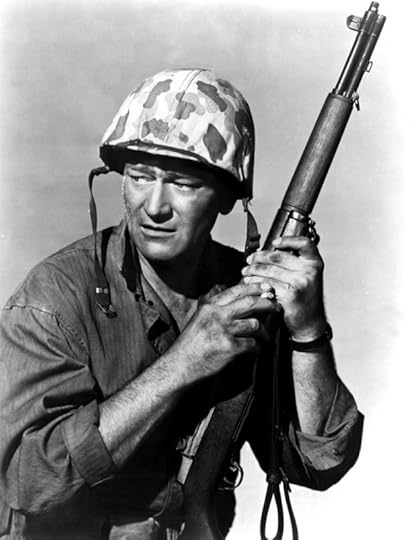
John Wayne in Sands of Iwo Jima 1949
John Wayne acted in thirteen movies during WWII. At the time of Pearl Harbor, he was 34 years old and married with 4 children.
While many established actors such as Henry Fonda, Jimmy Stewart, and Clark Gable served on active duty, Wayne never did.
Viewing Hollywood films as important to the war effort, California draft boards often gave actors deferments.
Wayne obtained 3-A status, “deferred for [family] dependency reasons.”
In 1944, Wayne was reclassified as 2-A – “deferred in support of national interest.” A month later the Selective Service Board reclassified him 1-A, but his studio appealed and he retained 2-A status until the end of the war.
What would happen if the United States returned to a draft?
The post Why Didn’t John Wayne Serve in WWII? appeared first on Enemy in the Mirror.
October 28, 2013
Japanese Air Attacks on the Philippines – December 8, 1941
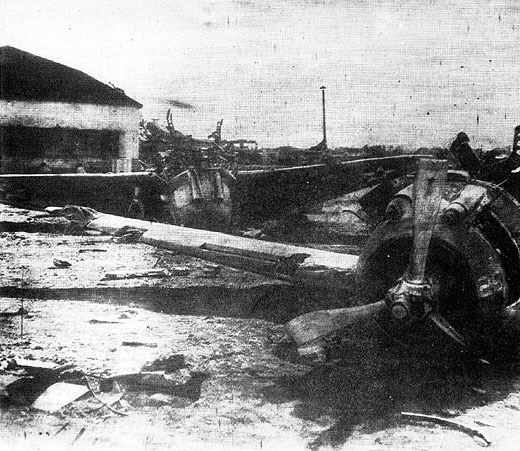
Clark Air base – aftermath of Japanese Attack Dec. 8, 1941; Wikimedia Commons
It is difficult to understand General MacArthur’s failure to place American military forces in the Philippines on a proper war footing immediately after hearing news of the Japanese attack on Pearl Harbor. Nine hours after he knew of the Pearl Harbor attack, many American aircraft remained on the ground, vulnerable to attack. The result was the effective elimination of American air power in the Western Pacific, withdrawal of the U.S. Asiatic Fleet from Philippine waters and extreme compromise of the defense of the Philippines against a subsequent invasion by Japanese troops.
The post Japanese Air Attacks on the Philippines – December 8, 1941 appeared first on Enemy in the Mirror.
October 25, 2013
1st Around-the-World Commercial Flight – 12/7/41
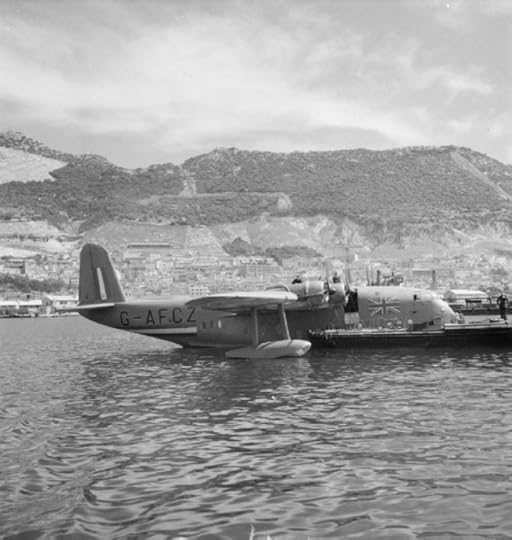
B-14 Flying Boat; Wikimedia Commons
The Pacific Clipper, a Boeing 314 flying boat, was preparing to land in New Zealand when Japan attacked Pearl Harbor. They backtracked to New Caledonia, then Australia. From there, they flew on to the Dutch East Indies, Ceylon, Pakistan, Sudan, Belgian Congo, Brazil and Trinidad, finally reaching New York City in the first around-the-world flight by a commercial airliner .
Total distance = 50,694 KM. Total flight time = 209 hours.
After this flight, the Pacific Clipper was assigned to the U.S. Navy for the rest of World War II.
The post 1st Around-the-World Commercial Flight – 12/7/41 appeared first on Enemy in the Mirror.
October 23, 2013
Japanese View of Pearl Harbor – Kafū Nagai 永井 荷風
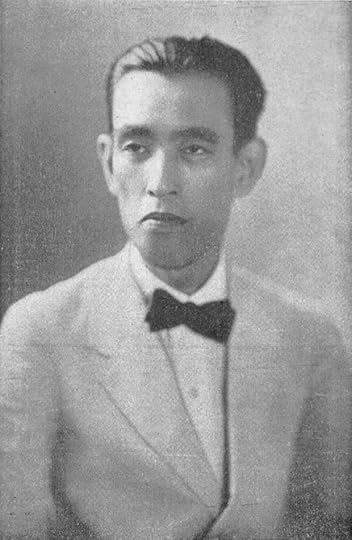
Kafū Nagai, 1927
Remember December 8!
On this day the history of the world was changed.
The Anglo-Saxon powers
On this day we’re driven back on East Asian land and sea,
It was their Japan that drove them back,
A tiny country in the Eastern Sea,
Nippon, the Land of the Gods
Ruled over by a living God.
- Nagai Kafū (1879-1959)
____________________
Kafū Nagai (永井 荷風, December 3, 1879 – April 30, 1959) was the pen name of author, playwright, essayist, and diarist Nagai Sōkichi (永井 壮吉). He wrote of life in early 20th-century Tokyo among geishas, prostitutes, cabaret dancers, and other denizens of the city’s lively entertainment districts.
The post Japanese View of Pearl Harbor – Kafū Nagai 永井 荷風 appeared first on Enemy in the Mirror.
October 22, 2013
Former American POWs invited to Japan
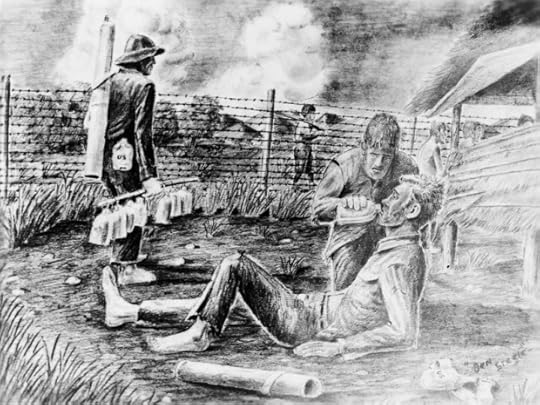
Cabanatuan prison camp; Wikimedia Commons
Four former American POWs who were captured in Guam and the Philippines during WWII met with Foreign Minister Kishida this month. The minister expressed his support and eagerness to continue the program, which began in 2010 under the Yukio Hatoyama administration.
Together with nine others, who suffered the same fate under the Imperial Japanese army, they will be staying in the country along with members of their family. Now at the age range of 91 to 94, the former POWs will be visiting locations that used to serve as internment camps, as well as other places in Japan.
The post Former American POWs invited to Japan appeared first on Enemy in the Mirror.
Enemy in the Mirror
I began by posting events around the turn This website www.enemyinmirror.com explores the consciousness, diplomacy, emotion, prejudice and psychology of 20th Century America and her enemies in wartime.
I began by posting events around the turn of the 20th century as I was researching my first novel about the Pacific War. I continued through WWII for my second novel about the Battle of the Atlantic. Now I am beginning to look at the Cold War as I gather information for my next novel about the Korean War. ...more
- Mark Scott Smith's profile
- 7 followers




